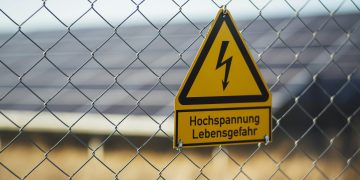In the vibrant tapestry of our global energy transition, the solar industry gleams as a beacon of hope, promising a cleaner, more sustainable future. Yet, as the sun’s rays dance across the panels, a shadow of complexity emerges beneath this bright promise. Developing markets, rich in the resources essential for solar technology, find themselves at the heart of a growing debate. Are these nations being empowered through partnerships, or are they merely fields ripe for exploitation by an industry hungry for materials? As we delve into the nuanced relationship between the solar sector and these resource-rich regions, we explore the intricate balance between progress and ethics, seeking to illuminate the truths hidden in the shadows of this burgeoning industry.
Harnessing the Sun: Balancing Energy Needs and Ethical Resource Use
The rise of the solar industry has sparked a significant transformation in the global energy landscape, offering a cleaner alternative to fossil fuels. However, this rapid growth often leads to a complex interplay of ethical considerations, particularly when it comes to sourcing materials from developing markets. While solar panels are heralded for their eco-friendly promise, the mining of essential minerals like lithium, cobalt, and copper frequently occurs in regions where regulatory oversight is limited. This raises critical questions about the environmental and social costs borne by these communities.
- Environmental Impact: Mining activities can lead to deforestation, water pollution, and biodiversity loss.
- Social Implications: Communities might face displacement, and there can be a lack of fair compensation for resources extracted.
- Economic Considerations: While some regions benefit from job creation, the profits often flow back to multinational corporations, leaving local economies underdeveloped.
To ethically harness the sun’s potential, it is crucial for the solar industry to adopt sustainable practices that prioritize transparency, equitable resource distribution, and investment in local economies. By aligning technological advancements with ethical resource management, the solar sector can truly illuminate a path toward a sustainable and just energy future.

Unearthing the Impacts: The Solar Industrys Footprint in Developing Regions
The solar industry, with its promise of clean and sustainable energy, has been expanding its reach into developing regions. This expansion brings both opportunities and challenges. On the positive side, solar projects can provide much-needed electricity to remote areas, foster economic development, and create jobs. They can reduce reliance on fossil fuels, helping countries meet climate goals and improve air quality. However, there are concerns about the industry’s practices in these regions, particularly regarding resource exploitation and environmental impact.
- Land Use: Large solar farms require significant land areas, potentially leading to displacement of local communities and loss of agricultural land.
- Resource Extraction: The production of solar panels involves the mining of materials like silicon, silver, and lithium, which can have significant environmental and social impacts if not managed responsibly.
- Economic Disparities: While the industry can bring economic benefits, there is a risk that profits are not equitably shared with local communities, leading to tensions and inequalities.
As the solar industry continues to grow, it is crucial to address these issues through sustainable practices and community engagement, ensuring that the benefits of solar energy are truly shared and do not come at the expense of vulnerable populations.

Empowering Communities: Strategies for Equitable Solar Resource Management
To truly harness the potential of solar energy in a manner that benefits all, a focus on equitable resource management is essential. Communities can be empowered through several strategies that prioritize local involvement and sustainable practices. One approach is the establishment of community-led solar cooperatives that allow locals to have a stake in the projects, ensuring that the benefits remain within the community. Additionally, implementing transparent decision-making processes can foster trust and collaboration between developers and community members.
- Community Ownership: Enable locals to invest in solar projects, ensuring they receive a share of the profits.
- Educational Initiatives: Provide training and workshops to enhance skills and knowledge about solar technology and maintenance.
- Inclusive Policy Development: Engage with diverse community groups to create policies that address specific local needs and challenges.
By adopting these strategies, the solar industry can mitigate the risk of exploitation and contribute to a more balanced distribution of resources and opportunities, fostering a sustainable and inclusive energy future for developing markets.
Charting a Sustainable Path: Recommendations for Responsible Solar Expansion
The burgeoning solar industry, while a beacon of hope for sustainable energy, must tread carefully in developing markets to ensure a responsible and equitable approach. A balanced solar expansion strategy should prioritize not only energy production but also environmental stewardship and social equity. Here are some key recommendations to achieve this:
- Ethical Sourcing of Materials: Implement rigorous supply chain audits to ensure that raw materials like lithium and cobalt are sourced responsibly, minimizing environmental damage and human rights abuses.
- Community Engagement: Involve local communities in decision-making processes to ensure that solar projects meet their needs and do not displace or disenfranchise them.
- Capacity Building: Invest in training and education programs to empower local workforces, ensuring that they can take part in and benefit from the solar industry’s growth.
- Environmental Protections: Establish stringent environmental guidelines to prevent habitat destruction and promote biodiversity conservation in areas where solar projects are developed.
By following these recommendations, the solar industry can chart a sustainable path forward, ensuring that its expansion is not only economically viable but also socially and environmentally responsible.
In Summary
As the sun sets on our exploration of the solar industry’s complex relationship with developing markets, it becomes clear that the issue is multifaceted, with rays of both opportunity and challenge. While the promise of renewable energy shines brightly, illuminating paths to sustainable development and economic growth, shadows of exploitation and inequity linger, reminding us of the need for vigilance and responsibility.
In this dynamic interplay, the role of global stakeholders becomes crucial. Governments, corporations, and communities must collaborate to ensure that the transition to solar energy is not just a technological shift but a catalyst for equitable progress. By prioritizing transparency, fair trade practices, and local empowerment, the solar industry can help light the way to a future where sustainability is not merely a privilege of the developed world but a universal right.
As we continue to harness the power of the sun, let us remain mindful of the balance we must strike—where innovation meets ethics, and where the pursuit of green energy respects and uplifts all communities it touches. In this ongoing narrative, each of us has a role to play, ensuring that the solar industry’s journey is as sustainable and inclusive as the energy it seeks to provide.


































